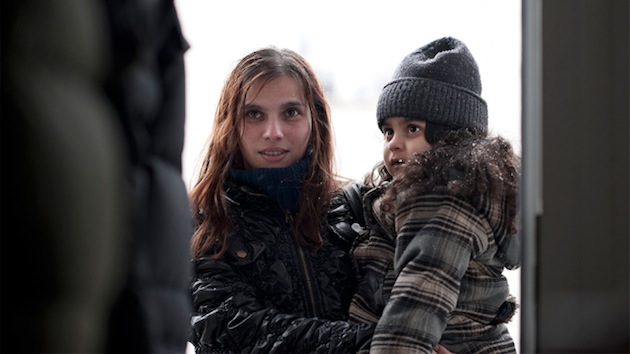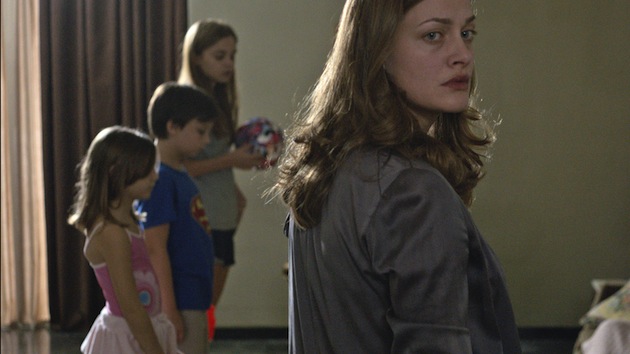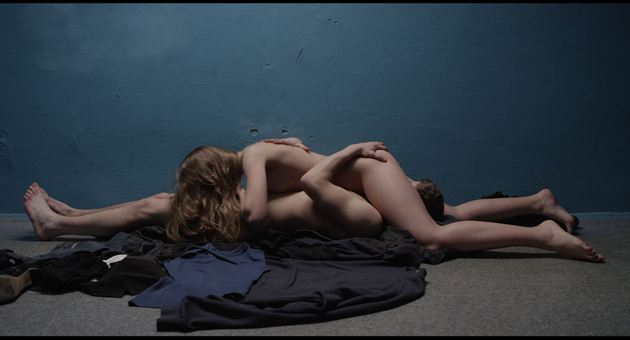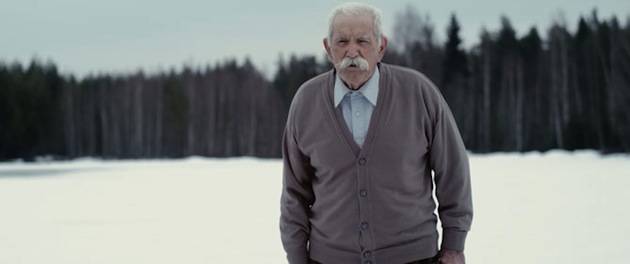
The Way Out
The Czech and French co-production, The Way Out, snatched the Best Film award in the main competition of first and second features. Petr Václav, the Czech filmmaker living and working in France, returned to the theme of racial discrimination that he had already treated in his feature debut Marian (1996). The prejudice based on race persists as a hot topic not only in Czech Republic, and attracts even more attention as government rests idle. The Slovak film My Dog Killer addressed the affair partly. Václav focuses on the backlash of ill-reputation and putting-everybody-in-the-same-bag attitude as one decent Roma family struggles to make ends meet. Václav plunges amidst the Roma community in a docudrama fashion featuring non-actors (Klaudia Dudová, the protagonist, received The Best Actress Award even though this is her first role ever and she hadn´t any acting ambitions whatsoever) and use of real locations.
The Way Out is an unbiased and humane probe meandering through common problems within the community such as youth pregnancy, lack of education, even abuse by Roma moneylenders or pimps. Despite its anchoring in an ostracized ethnic minority and strong social and moral commentary, Petr Václav touches somewhat universal human themes of the daily struggle against all odds to find a modest place in life and in the world.
Letter To The King
Letter To The King, a Norwegian offering often hailed as the best Scandinavian film of 2013, snatched the Special Mention and the award of the mayor of Trenčianske Teplice. A plethora of immigrants' tales creates emotional mosaics of hardship in a foreign country. The overall felling comes near Petr Václav´s film of constant endeavor to achieve a decent life, a strong overall sign coming from the European continent. The director, Hisham Zaman, elegantly interweaves all the micro-stories into a coherent and strong plot.

White God
Kornel Mundruczo´s White God (could be also called White Dog) should be an unorthodox parable and daring fable. A leading dog often taking the spotlight of the main human protagonist made hard to decipher whether the film is supposed to be a joke or a serious matter. The human girl, Lilli has to spend some time with her divorced middle aged father while her mother is away on a business trip. Lilli and a dog named Hagen form an inseparable couple until a chain of events forces Lilli´s father to leave Hagen under a bridge against her strong protests.
At this point, the narrative line splits into two streams, each of them fixed on human and canine protagonist respectively. Lilli undergoes a rebellious phase dipped in coming-of-age fashion and re-bonding with her father unaccustomed to her presence and traps of blossoming into womanhood. This soft and caring line is abruptly outweighed by a grim fable of acquiring predatory freedom. Hagen is living literally "a dog´s life" until he breaks from the leash and wrecks havoc.
The canine rebellion takes the shape of a genre piece, well crafted and amazingly orchestrated (the dogs´ trainers did a magnificent job) yet still balancing on the edge of high and low art. The motley of both provokes a certain detachment that enables a more powerful interpretational grip over the film.

Miss Violence
It´s still good to know that we can return to the Hellenic peninsula and still be impressed by the domestic cinema. The Greek New Wave did not lose a breath and new daring pieces come rolling from Plato´s homeland. Miss Violence belongs to many thought-provoking dramas exhibiting the talent of Greek filmmakers. Director Alexandro Avranas doesn´t hesitate and takes the audience by storm.
The premise of the film as well as the opening grants viewer´s devotion during the whole running time. A seemingly ordinary Greek family finishes the last touches to a birthday party for 11-year old Angeliki. Just after the obligatory family photo is taken, Angeliki´s brain spills on the pavement in front of their apartment. This visual invitation is hardly to be ignored. The well and wisely structured plot is designed as a mystery story luring to crack the reason of suicide, playing out also as an a tad twisted albeit superbly forged allegory.
The majority of story occurs in a claustrophobic apartment governed by an apparent patriarchal system strongly echoing Yorgos Lanthimos´ memorable Dogtooth. The latent dread slowly fulfills the apartment while the dwellers act suspiciously indifferent while some evidence suggests that the dominant yet diligent father shields some ill-intentions. It takes some time to decipher the real family relations among the central family, nevertheless that´s yet another part of the game Avranas is playing with spectators.
The director comes near as possible to borderline crazy and the film will certainly put off some people as pieces start falling into their places, however there is not a single gratuitous scene, Avranas maintains himself contained in an economical mode as he could have cut into the bone and on the top of the bold parable, the director showcases his storytelling talent (underlined by some interesting choices when it comes to inner composition and mise-en-scène).

The Tribe
One of the most talked about films was definitely Ukrainian produced >b>The Tribe, a Cannes favorite and one already on track for release in many territories, including the US. Myroslav Slaboshpytskiy's offering does the talking without generating excessive PR pressure. This chunk of raw social realism is mercilessly served in a Dardenne-like style. The hypnotically composed long shots don´t reek of blank mannerism and evoke the best of 4 Months, 3 Weeks, 2 Days while a visceral jaw-grinding homemade abortion is just the icing.
The film opening warns the viewers that the absence of subtitles is intentional and all the dialogues will be carried out entirely in sign language. This set-up enhances the viewing experience as every gesture and face-play count. The immersive and bold film introduces a new student, Sergey, at a boarding school for the deaf and mute. Sergey soon discovers a shadowy structure the students have built and eventually assimilates into it. It´s more sophisticated than a gang but at the same time more barbarian than the mafia, although the scope of the work is pretty much the same executed in DIY design.
Shortly after an abrupt promotion, Sergey starts tearing the fine fabric of the tribe as his gluttony and selfishness kicks in, or in other words he falls in love defying every single romance formula. What follows is an angst stricken promethean revolt sketched as a crossover between Beyond Good and Evil and Freud´s theory of libido. It might be a bit frightening and challenging, certainly uncanny, film yet eyes won´t simply peel off it.

























